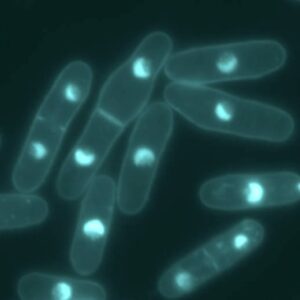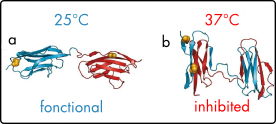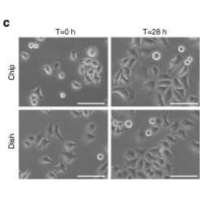Summary
One major advantage of using genetically tractable model organisms such as the fission yeastSchizosaccharomyces pombe is the ability to construct temperature-sensitive mutations in a gene. The resulting gene product or protein behaves as wildtype at permissive temperatures. At non-permissive or restrictive temperatures the protein becomes unstable and some or all of its functions are abrogated. The protein regains its function when returning to a permissive temperature. In principle, temperature-sensitive mutation enables precise temporal control ofprotein activity when coupled to a fast temperature controller. Current commercial temperature control devices do not have fast switching capability over a wide range of temperatures, making repeated temperature changes impossible or impractical at the cellular timescale of seconds or minutes. Microfabrication using soft-lithography is emerging as a powerful tool for cell biological research. We present here a simple disposable polydimethylsiloxane (PDMS) based microfluidic device capable of reversibly switching between 5 °C and 45 °C in less than 10 s. This device allows high-resolution live cell imaging with an oil immersion objective lens. We demonstrate the utility of this device for studying microtubule dynamics throughout the cell cycle.
Publication source
- Source : Lab on a Chip
- Paper title : Fast microfluidic temperature control for high resolution live cell imaging (Guilhem Velve Casquillas, Chuanhai Fu, Mael Le Berre, Jeremy Cramer, Sebastien Meance, Adrien Plecis, Damien Baigl, Jean-Jacques Greffet, Yong Chen, Matthieu Piela and Phong T. Tran, 2011)



